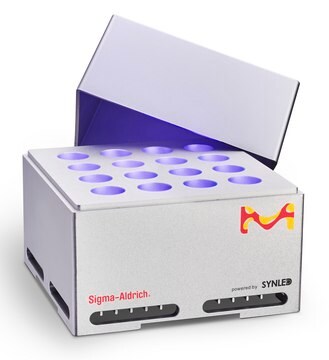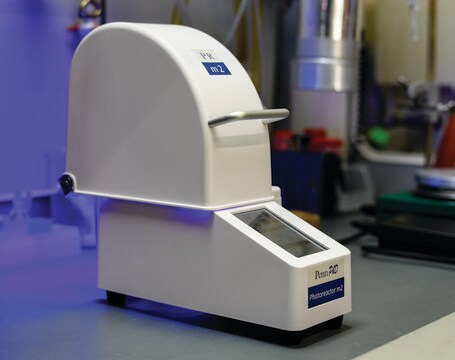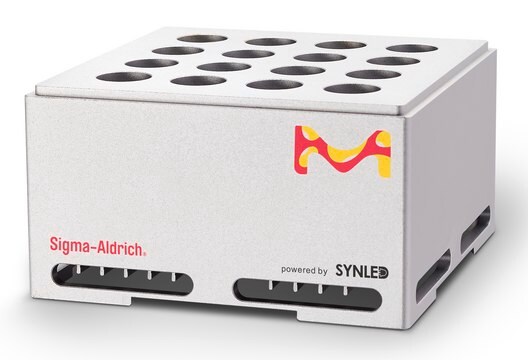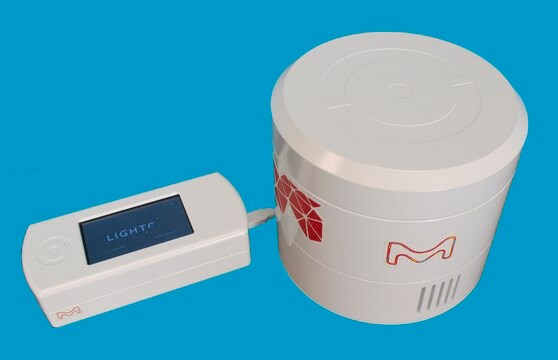Z742680
SynLED Parallel Photoreactor
Synonym(s):
parallel photoreactor
About This Item
Recommended Products
AC/DC input
, universal plug set (included)
100 - 240 V AC, 50/60 Hz
feature
capacity 16 vial(s)
reaction suitability
reagent type: catalyst
reaction type: Photocatalysis
parameter
465-470 nm spectral range
General description
Features and Benefits
- Bottom-lit LEDs (465-470 nm) across a 4x4 reaction block array provides consistent light intensity (130-140 lm) and angle (45°)
- Built-in cooling fan provides consistent temperature to each parallel reaction
- Uses 1-2 dram scintillation vials or microwave vials (O.D. of 1.7 cm or less)
- Power supply is wall plug power supply 700mA 12 W
- Compatible with IKA magnetic stirrer with round plate (Z645052)
- Compatible with liquid scintillation vials (8 mL Wheaton, Z188719)
Other Notes
related product
Choose from one of the most recent versions:
Certificates of Analysis (COA)
Sorry, we don't have COAs for this product available online at this time.
If you need assistance, please contact Customer Support.
Already Own This Product?
Find documentation for the products that you have recently purchased in the Document Library.
Customers Also Viewed
Articles
Photoredox catalysis is a powerful synthetic methodology to form challenging covalent bonds using light irradiation. It is effective for light-driven polymer and small molecule synthesis.
Csp2- and Csp-hybridized coupling reactions are established catalytic approaches. However, multi-step Csp3- and Csp2-coupling reactions of boronic acids and related derivatives are still limited by ineffective two-electron transmetalation reactions.
While Markovnikov alkene reactivity is very well developed and utilized commonly in the synthesis of commodity and research chemicals, catalytic access to the anti-Markovnikov-selective adducts is a much less-developed endeavor.
Our team of scientists has experience in all areas of research including Life Science, Material Science, Chemical Synthesis, Chromatography, Analytical and many others.
Contact Technical Service











